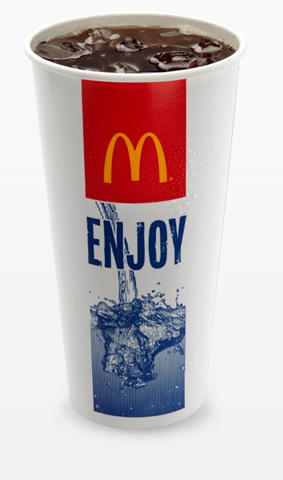I have been agitating for a while that supermarkets sell the worst kind of food. I even go so far as to say that everything they sell makes you fat.
Which consistently causes folks to disagree with me, after all 98% of Americans buy their food from them.
But, that means they have a complete monopoly on our food system, and with our health in their hands, the US obesity rate is skyrocketing to unheard-of levels.
In the fast food industry, a recent report states that Subway is now the worlds largest fast food chain, displacing McDonalds. There is also a booming salad industry with an explosion of salad fast food chains.
Perhaps the fast food industry will save us?
Well, remember the cliche: “I’m on a diet so please give me a Diet Coke instead of a Coke.”
I think that fits as an analogy here.
Just saying you’re eating a salad doesn’t mean you are eating well. One could skip the hamburger for the salad then load it up with dressing and fried chicken. A report from ABC’s Good Morning America, points out that in many cases the salad is equally fatty or worse.
They point out that iceberg lettuce, which accounts for much of the salad, has “zero nutrients and zero fiber.”
Which is where I draw the line.
—
The story is all wrong. Yes, iceberg lettuce can be at zero, but so can everything else we eat. Let’s not take an entire crop and label it as useless.
Instead we should understand the nature of food. First and foremost, quality is the most important aspect of food and not all are created equal. Or, put another way, vegetables that are grown from quality seeds and harvested when ripe are densely filled with nutrients.
But, if you buy vegetables from a supermarket or fast food chain, you are not getting this. Instead, you are purchasing the cheapest food money can buy. Which means they are harvested before they are ripe and grown from the cheapest seeds.
There’s more. A growing number of items, like tomatoes and strawberries, have been modified to produce extra sugars. Added together you have produce practically empty of nutrients but with extra sugar.
Fantastic.
Even if you choose the best supermarkets have to offer, you skip the dressing, choose a lean meat, and all that…then the best you can do is “the cheapest food money can buy.”
A lot like choosing the Diet Coke.
—
If you’re new to this, here a good way to think about it.
Take the typical supermarket salad and cut it in half. That should be your portion size when eating high quality food. It should make you feel full and it should be delicious.
The reason for this is the dense amount of nutrients in the food which also makes it taste much better. Decrease the amount of nutrients and you will increase the amount you eat. It’s as simple as that.
Now, how long do you think it will take for 2/3 of America to understand this?

photos
salad by catsper
tomatoes by clayirving
Very informative. Changing ones eating habits is not that difficult, it’s just knowing what to do. Less volume, more veggies, fresh local food. I’m in.
Iceberg lettuce is hardly nutrient free:
To put all of this in a more realistic perspective relative to the DRI/RDAs and a more usual serving, a 25 calorie serving of iceberg lettuce (which is the standard serving of a vegetable) provides:
6% of Fiber, B1, B6 and Vitamin C,
30% of Vitamin A,
13% of Folate,
36% of Vitamin K,
9% of Iron,
10% of Manganese,
http://www.jeffnovick.com/RD/Newsletter/Entries/2008/3/21_Iceberg_Lettuce%3A_A_Lesson_In_Nutrient_Density.html
5% of Copper, Phosphors and Potassium, and
6% of Omega 3s.
Tom – that depends on the iceberg lettuce. Is it fresh, in season, and ripe?
There has to be a difference between one sitting on a shelf at a store for a few weeks and one just pulled from the garden.